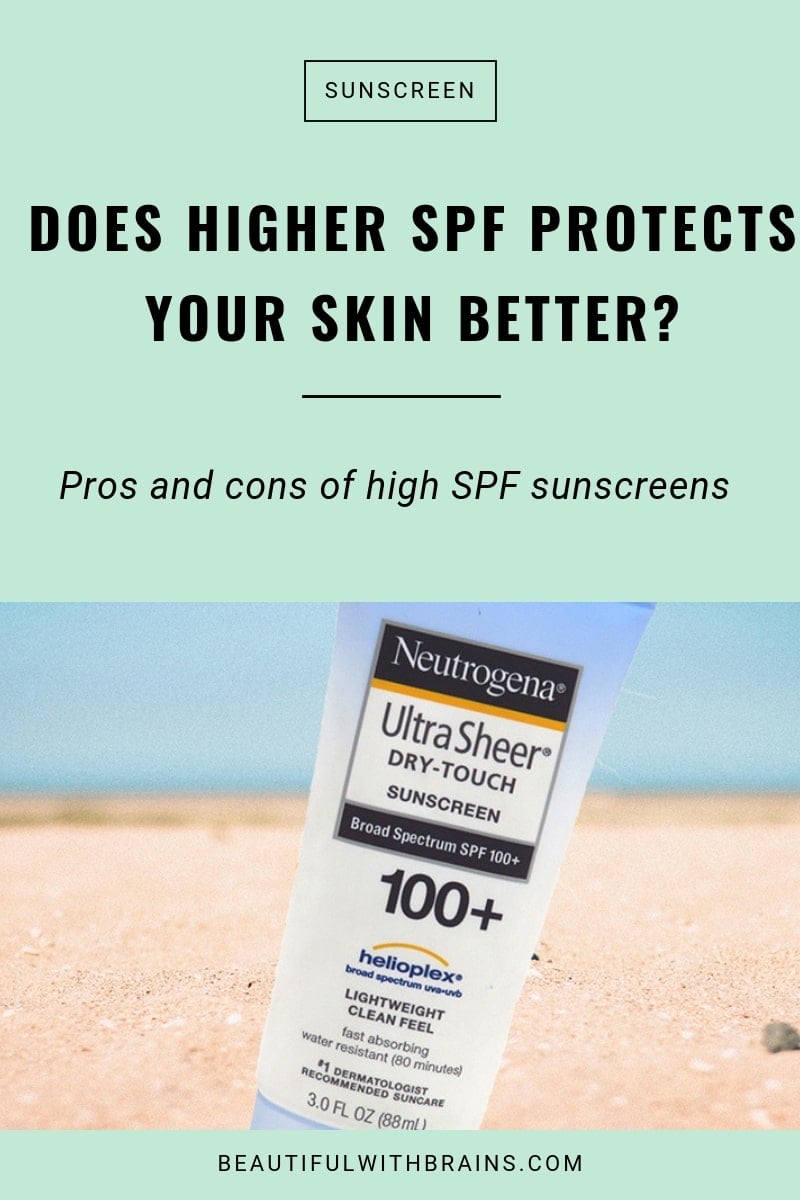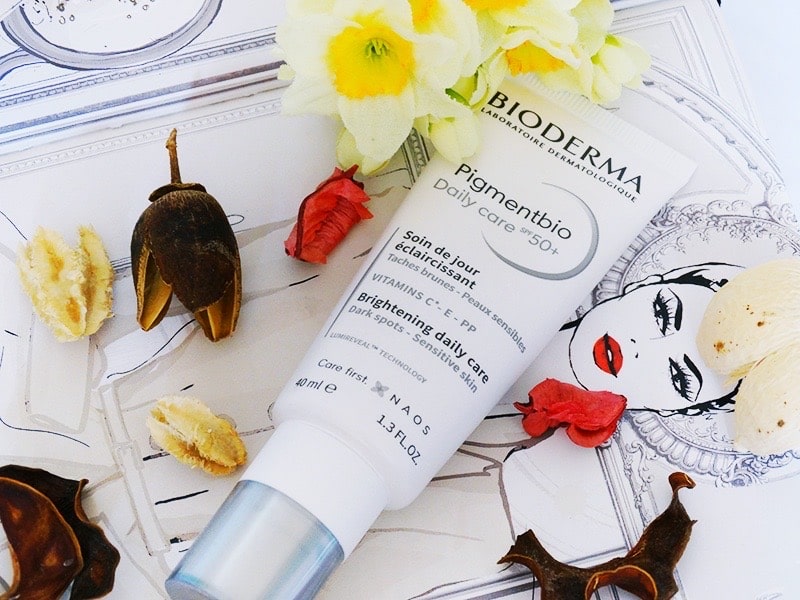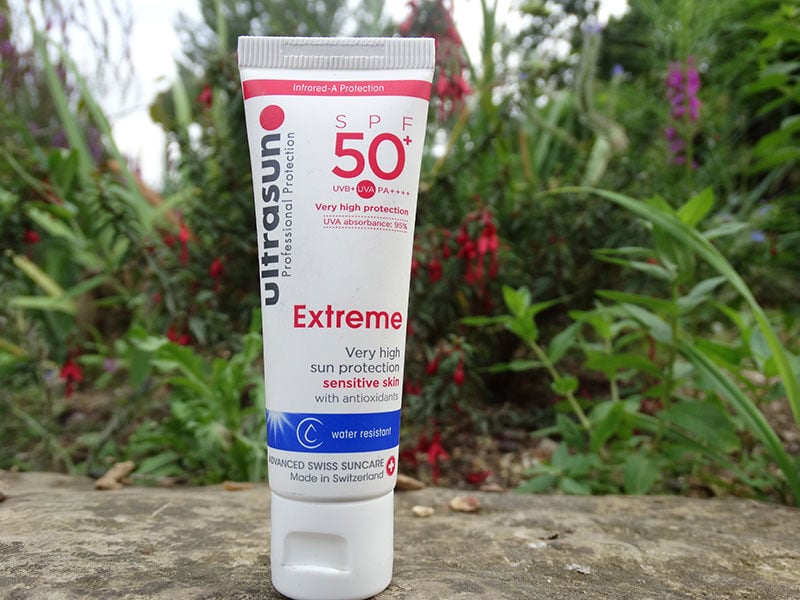
Have you heard? The FDA wants to ban sunscreens with an SPF higher than 50+. WTH?
They believe a high SPF creates a false sense of security. You believe it gives you better protection so you don’t apply as much or retouch it as often. It’s kinda true, isn’t it?
Yet new studies show that SPF 100 DOES give you better protection than SPF 50. So, shouldn’t the FDA encourage people to use it – the RIGHT way?
How SPF works
You’ve probably heard that SPF is the amount of time you can stay in the sun without burning. Let’s say, if your skin burns after 20 minutes without sunscreen, it’ll burn after 5 hours with SPF 15.
That’s the theory. The practice is a little difference. When scientists measure SPF, they use an UV lamp that pumps out a consistent amount of UV light.
That’s not what happens in real life, is it? As the sun rises, you have only a little sunlight. The light peaks at noon and then slowly diminishes again as the day goes by and leaves its place to the night.
In other words, your skin will burn sooner in the early afternoon than in the early morning – even if you wear the same SPF number.
That’s why it’s impossible to tell exactly when you should reapply sunscreen. After 2 hours? 3? 4? It really depends on the SPF you’re wearing AND the amount of UV light you’ve exposed to AND at what times of the day you were exposed to it.
I know, it’s enough to drive a girl crazy. I’ve explained my personal method of figuring out when to reapply sunscreen here.
P.S. While we’re on the subject, SPF refers only to the protection your sunscreen gives you from UVB rays. It doesn’t cover UVA rays too.
Related: How Often Do You Need To Reapply Sunscreen?
How effective is your sunscreen? Sign up to the newsletter below to receive the “Sunscreen Audit” Worksheet and find out if your sunscreen is really up to the job:
How Much UV Radiation Does SPF Block?
So, SPF 30 gives you double the sun protection of SPF 15, right?
Wrong. It sounds logic, but that’s how not SPF works. Here’s how much radiation SPF numbers can really block:
- SPF 15: Blocks 93% of UVB rays => still lets 7% through
- SPF 30: Blocks 97% of UVB rays => still lets 3% through
- SPF 50: Blocks 98% of UVB rays => still lets 2% through
- SPF 100: Blocks 99% of UVB rays => still lets 1% through
When you put it like that, it doesn’t seem like it’s worth to switch from SPF 50 to SPF 100 or even from SPF 30 to SPF 50, right? Why go through the trouble of finding a higher SPF sunscreen if it works only 1% better?
Why Higher SPF works Better Than Low SPF
Here’s the deal: the amount of UVB rays a sunscreen still lets through is more important than the amount it blocks. It’s the UV rays that get through that cause all sorts of damage. Here’s the proof:
A 2018 study found that SPF 100+ sunscreen is more protective against sunburn than SPF 50+ in actual use.
Researchers asked 199 people to wear SPF 50 on one side of the face and SPF 100 on the other side of the face. They then took part in a number of activities outdoors, just like they would normally do. The aim was to test the SPF in the way real people wear it and use it, not in a sterile lab.
The result? At the end of their activities, 55.3% of the participants were more sunburned on the SPF 50+ side. Only 5% were more sunburned on the SPF 100 side.
And that just measures sunburn. UV rays also give you wrinkles, dark spots and, in the worst case scenario, cancer. Having 1% more of UVB rays hitting your skin doesn’t seem like much, but over 30+ years, every little bit does add up!
I bet now you want to switch to SPF 100 too. But wait, there IS a catch…
Related: Take A Number: What SPF Number Is Right For You?

What’s wrong with high SPF numbers?
Here are the catches:
- False sense of security: You think that SPF 100 is so high, you can get away without reapplying it. This may be true if it’s winter and you’re spending most of your time indoors and away from windows. But most days – especially spring and summer – you still have to reapply SPF regularly.
- Greasier textures: If you want to up that SPF, you need a higher dose of UV filters. But a lot of them have oily, thick textures that feel greasy when you apply them. That alone means you’re tempted to apply less than the recommended amount (1/4 of a teaspoon alone for the face) and reapply it less often.
Related: How Much Sunscreen Do You Need To Apply?

Is Higher SPF Better Than Lower SPF?
The best sunscreen is the one you’ll use. What’s the point of switching to SPF 100 if you find it so greasy you can’t stand putting on more than the thinnest layer?
By all means, do experiment with different formulas, sunscreens and SPF levels until you find one that works for you. Go with the highest number your skin can tolerate – texture-wise, I mean.
The Bottom Line
Higher SPF can give you better sun protection – if you use the recommended amount and reapply it as often as needed. But if high SPF sunscreens are too greasy for you, it’s ok to go for a lower number – and seek the shade whenever possible.
Do you think that higher SPF means better sun protection, too? Share your thoughts in the comments below.


Thanks, Gio!
If it’s the same price either way, I’ll get the highest number. But, since you usually have to pay more the higher the SPF gets, I tend to stick with 50.
Trisha, you’re welcome. I agree, there’s no point in paying more for a higher SPF when the difference in protection is so minimal. Besides, what really matter is that you apply it liberally and often.
Trisha,that’s a bad idea, if you are using a chemical spf 100 sunscreen to prevent cancer ,if you buy one: Some people think wearing a chemical sunscreen daily outweighs the risk of contributing to cancer and genetic mutations from it (sunscreen), than not wearing it at all, than getting cancer from sun exposure. There is some truth in this, but not completely. For one; You need sun to create vitamin D. Studies have found that (Quite a surprise to what people tend to think)those who spend a lot of time in the sun have a much lower risk of melanoma than people who avoid it (but then a much higher risk of other skin cancers. A decent amount of sun exposure prevents skin cancer, let alone any cancer, though.). Melanoma is really a vitamin D deficiency. It is no wonder even though more and more people are wearing sunscreen, more and more people are getting melanoma than ever before (to the wonder of doctors and dermas! I just find that ironic.)! I also think, although, that wearing any sunscreen is better than getting burned (burning causes skin cancer.), and getting skin damage. I think getting about 20 minutes a day, twice a week should provide enough vitamin D for the whole week, and then wearing sunscreen the rest of the time is the best way to prevent cancer, because even though I take the stance of “Vitamin D prevents skin cancer,” I have also heard that even casual sun exposure can cause cancer. So if I were you, I’d do that and take a vitamin D supplement and go for a mineral sunscreen to avoid cancerous chemicals. A plus about them is that they don’t degrade in sunlight and an application can last you throughout a casual sun exposure day (Yippee! No reapplication necessary!). Research has confirmed that using a chemical sunscreen can prevent the “less bad” cancers such as squamous cell but they have not found proof that it does much to prevent the really bad skin cancers. Infact, the FDA doesn’t even stand behind the claim that the chemical sunscreens prevent cancer (Huh? Don’t believe me? I dare anybody reading this comment to go to the FDA’s website and see this for themselves. The reason is that there is no proof that chemical sunscreens can affectively prevent skin cancer! I honestly believe that they actually help cause cancer.). If you do use a chemical sunscreen, however,please use between an SPF 15-30. Not a 100.A lower number will save you from damage just as well, with the exception of a minute UVB (Burning rays. Worry more about the UVA rays. SPF only has to do with UVB.) protection difference. A lower spf will be the lesser of the two evils. An SPF 100 does not justify itself with the reasoning I mentioned in the beginning of my reply to your comment. Anything over 50 is a false sense of security and is doing more harm than good if your reasoning is,” wearing a chemical sunscreen daily outweighs the risk of contributing to cancer and genetic mutations from the harsh, active ingredient chemicals in the sunscreen, than not wearing it at all, and getting cancer from sun exposure.” A spf 100 is more like poisoning yourself with an overdose of something than actually doing good. Hope you find this helpful!
H, I don’t think chemical sunscreens cause cancer, but I agree with everything else you said. Getting enough sun exposure to produce all the vitamin d you need, and using a mineral sunscreen with a lower spf the rest of the time is indeed the best way to keep your skin protected and yourself safe and healthy. Thank you your thoughtful comment.
Hi Gio! Guess what? I know this has been a long time since I posted my last comment for this article but I just found out that no UVB rays go through windows so that’s good news for everybody who knows there isn’t much difference in a spf 30 and 100 but are tempted by the high number anyway. If more people knew this they’d less likely spend extra $$$ on an extremely high spf number. Like, I guess this should have occurred to me earlier since the reason we all have to wear sunscreen indoors is ’cause of the UVA,but I guess it’s never occurred to people that buy the SPF 100 anyway.Just wanted to share. Love your blog!
That’s so true, H. Thanks so much for the remainder. It’s sad that people spend more for something that’s not necessary. A lower SPF can work just as well, if not better, and save you money, too.
I should use 20 or 30 as I burn super fast, but with being inside almost all day since starting my PhD I’ve just been using the spf 15 in my moisturiser. And I often forget to reapply before I leave the office around 6pm. I’m lazy.
Katie, if you spend the day indoors, and away from windows, a moisturizer with SPF may *just* be enough. As long as you apply it liberally. But it’s always a good habit to apply sunscreen when going outside.
And good luck with your PhD! 🙂
This was very very helpful and clear – thanks! My summer vacation is coming up next week, and after reading this, I’ll be sure to reapply my sunscreen every couple of hours for sure!
Heather, you’re welcome. I’m glad you found it helpful.
Ya, totally agree with you. Besides leaving a false sense of security with the result of minimal protection you are getting ALOT more sunscreen chemical (if you use a chemical sunscreen) that can cause cancer than a lower spf!
H, better stay away, from them, isn’t it?
Hi Gio,
I was just wondering… if I apply sunscreen in the morning (I use Elta 47) and I am home all day (near windows but not with any sun streaming in- so just indirect light), do I need to reapply sunscreen if I leave the house later in the day after 4 pm, for example? I often get confused regarding the 2 hour rule because that applies if you are outside under the sun…and not indoors! Thanks for clarifying.
Geo55, personally I would reapply it just in case!